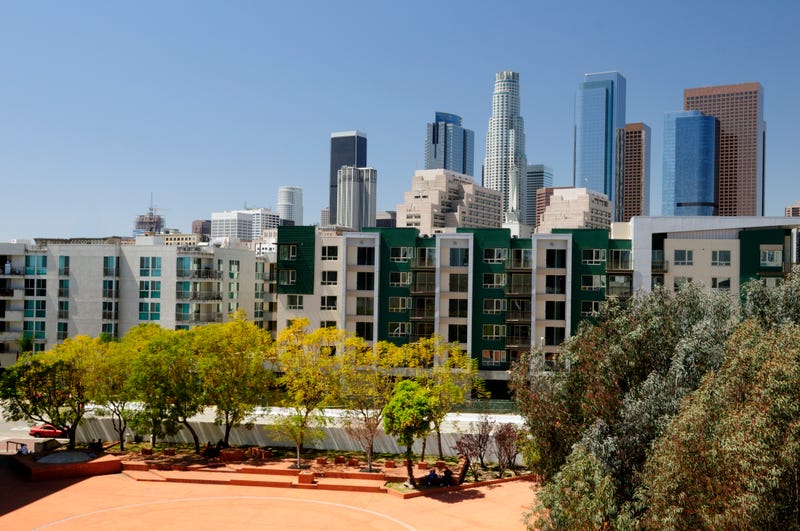
The Los Angeles City Council Tuesday requested an assessment of the impacts of SB 79, a law that allows for taller and more dense housing near select bus stops and train stations.
Want to get caught up on what's happening in SoCal every weekday afternoon? Click to follow The L.A. Local wherever you get podcasts.
In a 11-0 vote, the council instructed several departments to analyze the law, provide detailed maps of areas where such denser development projects would be allowed, assess personnel and financial sources needed for implementation, and how it will work with the city's existing planning regulations and incentives.
The council also asked for information from departments on how SB 79 will impact the city's infrastructure and utility systems.
Council members also instructed the city attorney to work with them prior to commencing any legal action regarding the bill.
No discussion was held on the motion prior to its approval during Tuesday's City Council meeting. Council members Traci Park, Monica Rodriguez and John Lee introduced the motion on Sept. 16.
"The city must conduct an analysis to understand the impacts of SB 79 on our neighborhoods and the rippling effects it will have across city departments," the motion read.
Previously, the three council members authored a resolution against SB 79, and the resolution was approved in a 8-5 vote. The resolution urged state legislators to exempt Los Angeles from the law, since the city already has a state-approved housing plan.
Mayor Karen Bass also opposed the bill and urged Gov. Gavin Newsom to veto it.
At the time, Park called SB 79 a "one-size-fits-all mandate from Sacramento."
"SB 79 would fundamentally change the zoning of neighborhoods without consideration to community, infrastructure, traffic, parking and public safety. It would effectively rezone hundreds of parcels across the city without completing environmental review through an Environmental Impact Report," the motion reads.
Sen. Scott Weiner, D-San Francisco, authored SB 79, which Newsom signed into law on Oct. 10.
"All Californians deserve an affordable place to live -- close to jobs, schools, and opportunity. Housing near transit means shorter commutes, lower costs and more time with family," Newsom said in a statement. "When we invest in housing, we're investing in people -- their chance to build a future, raise a family, and be part of a community."
The law is expected to go into effect July 1, 2026.
Under the law, housing projects up to nine stories tall could be built near certain transit stops and up to seven stories for buildings within a quarter-mile. Six-story housing projects would also be allowed for buildings within a half-mile of transit stops.
"SB 79 is a historic step toward tackling the root cause of California's affordability crisis -- our profound shortage of homes and too few people having access to transit," Weiner said in a previous statement. "In California, we talk a lot of about where we don't want to build homes, but rarely about where we do -- until now."
The bill is not expected to impact the ability of residents to rebuild their homes that were damaged or destroyed by January's wildfires.
"There are no qualifying transit stops within the burn scars of the Palisades or Eaton fires, and the measure includes additional safeguards for fire-prone areas, small cities under 35,000 residents and unincorporated communities," according to a message from Newsom to members of the state Senate. "Even if a qualifying transit stop were added in the future, local governments still retain discretion to shift density elsewhere in their jurisdictions."
Follow KNX News 97.1 FM
